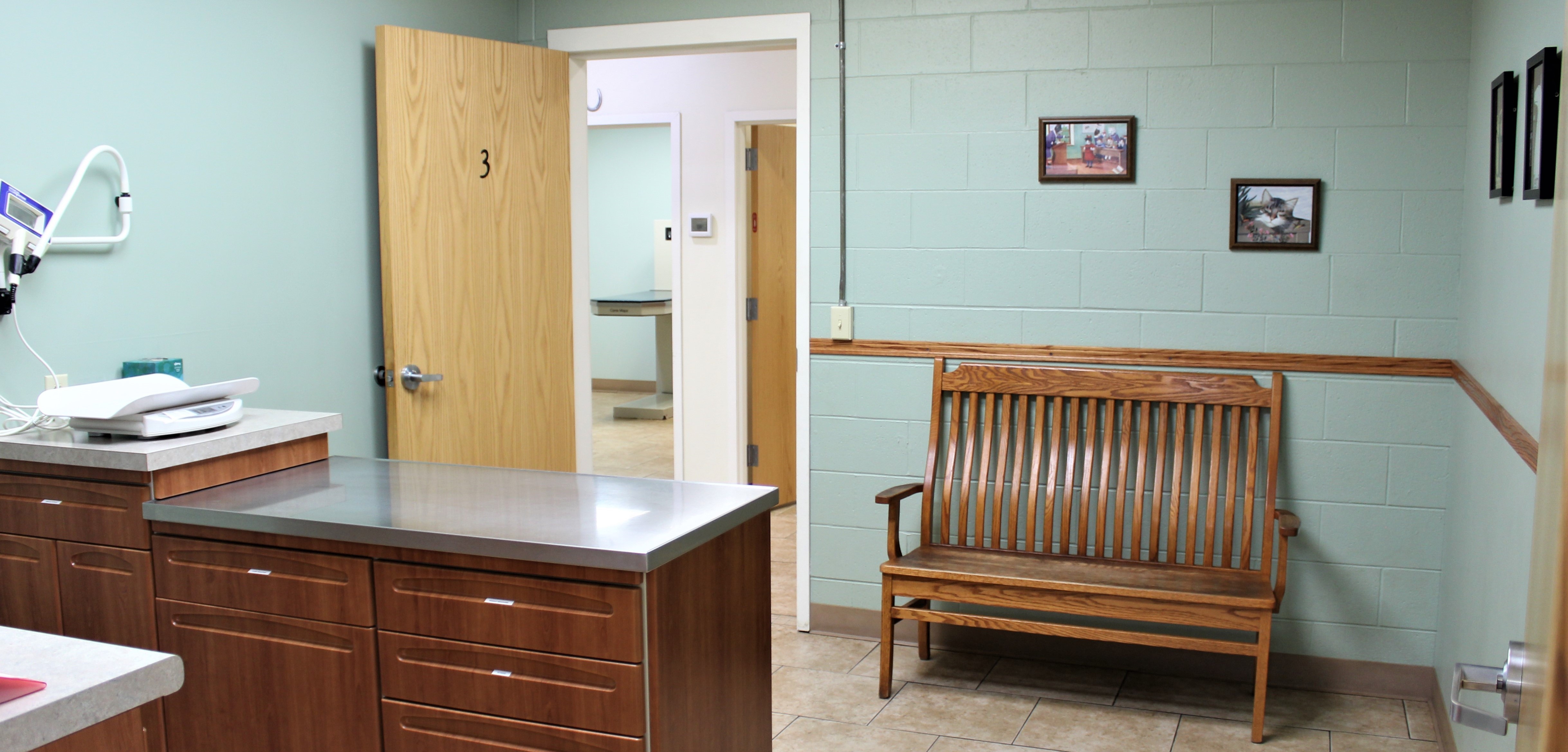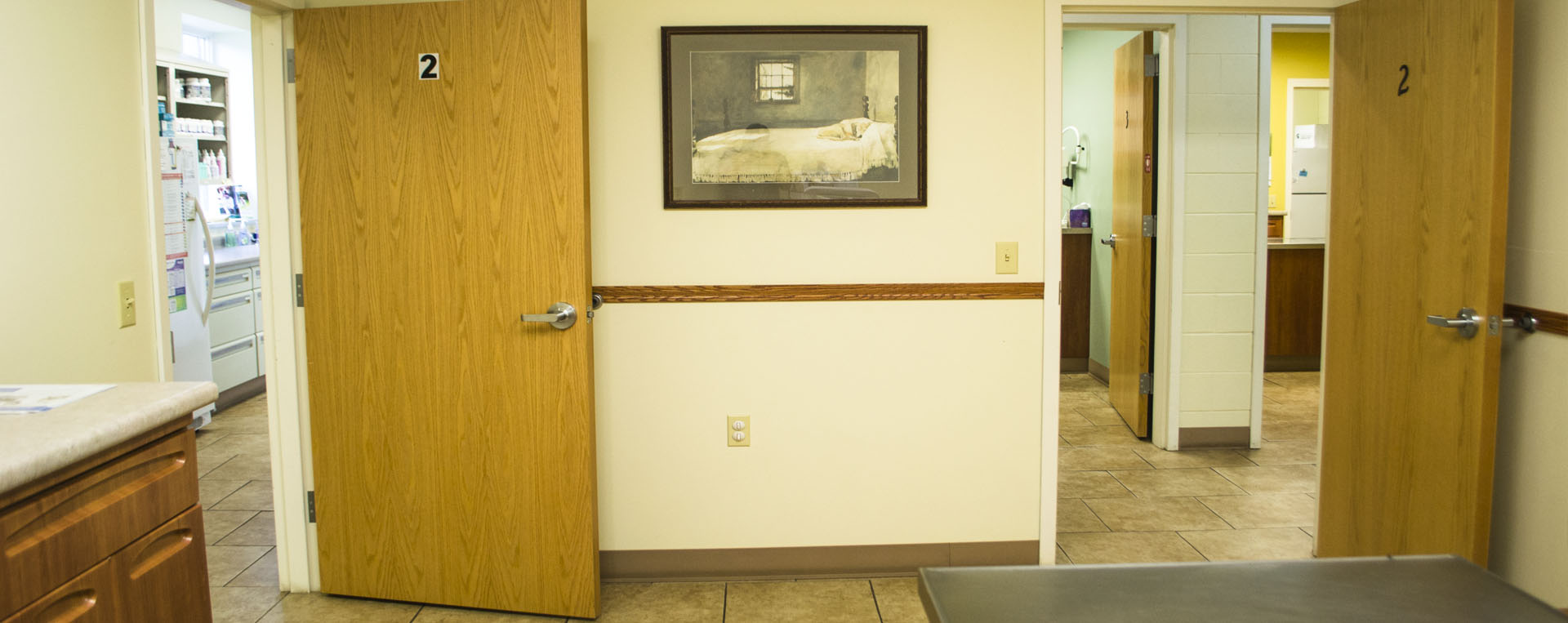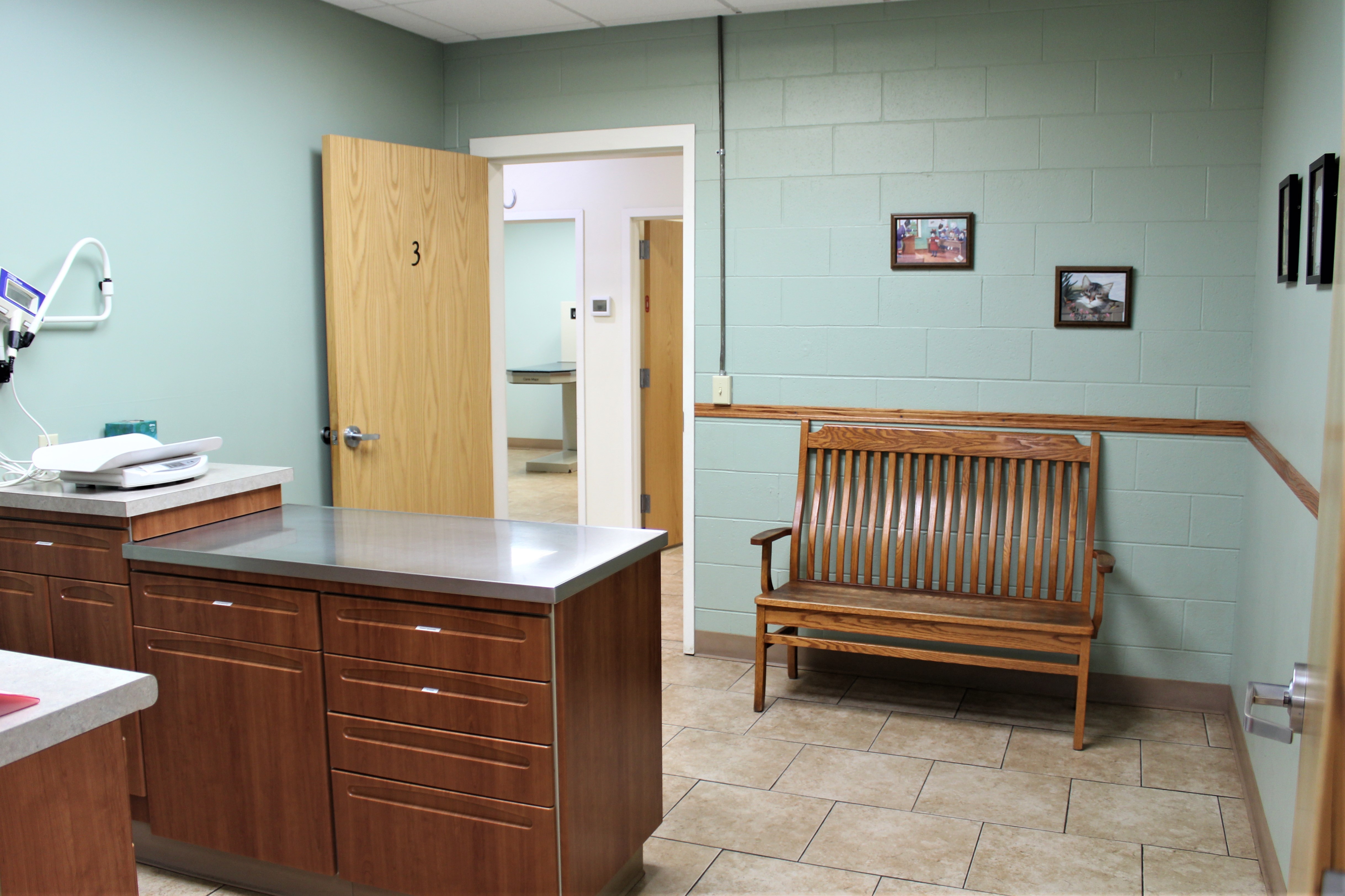Wellness Exams
Yearly Wellness Exams: A yearly Wellness examination is recommended in order to help prevent diseases or detect any illness/disease at an early stage, which often improves overall prognosis. It is important to remember that dogs and cats age at an accelerated rate compared to humans, and therefore their body can experience several changes over the course of a year.
2.) Early illness/disease detection allows us to initiate treatment sooner in the disease process and thereby slow progression, reduce the incidence of comorbidities (other illnesses) that may develop secondary to a primary issue, reduce or prevent irreversible organ damage, prolong life-expectancy, possibly reduce the amount of medication(s) needed, and reduce overall hospitalization time. These goals of early disease detection will not only improve the quality of life for your pet, but will also reduce overall cost because prolonged disease is often associated with secondary problems, additional medications, and increased frequency and duration of hospitalization.
Wellness Bloodwork & Urine Testing
The following tests are an essential part of an overall health check in cats and dogs and are used to
screen for many common conditions, some of which occur with a higher frequency in certain breeds. Some of these conditions arise early in life (< 3 years of age), in mid-to-late life, or can occur at any life-stage.
- Complete Blood Count (CBC): Provides information regarding red blood cells, white blood cells, and platelets to detect anemia (low red blood cell count), infections, blood parasites, certain mineral deficiencies or toxicities, some cancers, and some auto-immune diseases.
- Chemistry and Electrolytes: Used to evaluate liver and kidney function, screen for metabolic diseases including Diabetes/ Cushing's, and Addison's, and screen for congenital or acquired diseases.
- Thyroid: Used to screen for under active (hypothyroidism) or overactive (hyperthyroidism) thyroid disease. Hypothyroidism is common in dogs, while hyperthyroidism is common in cats.
- Infectious Disease Screening: Screens for common acquired infectious diseases. In dogs, this includes Heartworm disease, Lyme disease, Ehrlichiosis, and Anaplasrnosis. Heartworm is transmitted by mosquitoes, while the other three diseases are transmitted by ticks. In cats, testing screens for Feline Leukemia Virus (FeLV) and Feline Immunodeficiency Virus (Fly).
- Urinalysis: Evaluates for evidence of several diseases or conditions including: urinary tract infection (UTI), urinary crystals suggestive of urinary stones, certain metabolic conditions such as diabetes or Cushing's, kidney disease, infectious diseases, and certain cancers.
Yearly Parasite Testing (Heartworm and Intestinal Parasites)
Dogs and cats are at risk of acquiring numerous parasitic infections, some of which can occur prior to or soon after birth. Some parasites are external, such as fleas, ticks, mites, and lice. These parasites and the harmful diseases they carry are zoonotic, and therefore can feed and transmit disease to both people and animals. Click here for more information regarding fleas or here for more information regarding ticks, and the diseases each carry.
Other parasites are internal, such as heartworms and gastrointestinal worms or protozoa. Many of these parasites are zoonotic: therefore capable of infecting people. It is important to note that GI parasites may not be visible to the naked eye, but are detectable under a microscope. Heartworms (which are transmitted by mosquitoes) can only be detected using a blood sample.We recommend testing for gastrointestinal parasites (conducted on a stool sample), heartworms (blood sample), and tick-borne diseases (blood sample) yearly, although additional or more frequent testing may be recommended based on your pet's lifestyle and/or travel history. Please visit the websites listed below for more information regarding GI parasites, heartworms, and tick-borne diseases.
Heartworms:
https://www.heartworrnsociety.org/
https://www.cdo.gov/parasitesidirofilariasisi
https://www.cdc.gov/ticksidiseases/index.html
Microchips
We recommend that all pets receive a microchip for permanent identification. A microchip is approximately the size of a grain of rice and is implanted beneath the skin. Each microchip is given a unique ID number which is linked to your contact information. If your pet ever goes missing, any shelter or veterinary clinic with a microchip scanner can detect the unique ID number and reunite you with your pet. In addition, a microchip is required to obtain a lifetime dog license. Please ask our staff if you have any further questions regarding microchipping.
By law, all dogs in Pennsylvania must be licensed. Failure to license your dog can be subject to a fine. Licensing must be done yearly, unless a lifetime license has been purchased. Click here for more information regarding yearly and lifetime licensing.
Click here to obtain a copy of the annual or lifetime dog license form for Tioga County. You may visit the Tioga County Courthouse located at:
118 Main Street
Wellsboro, PA 16901
Please call the courthouse at (570) 723-8191 for more information.







